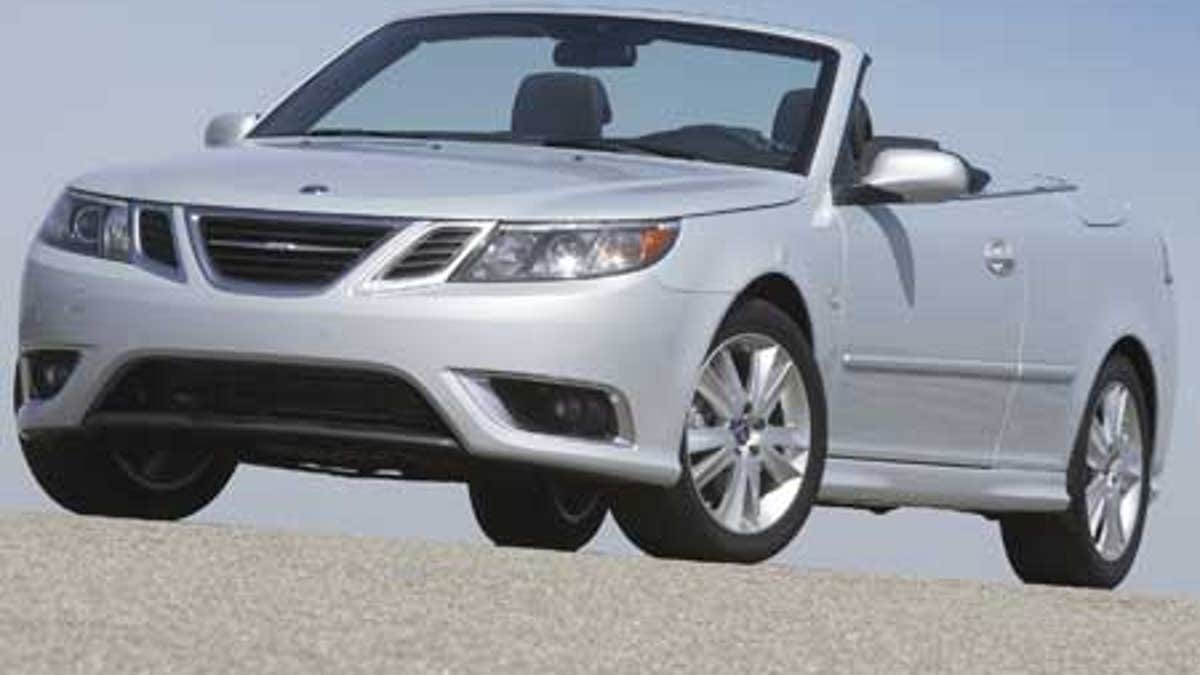
SAAB 9-3 Convertible (SAAB)
DETROIT – A Swedish specialty automaker has backed out of a deal to buy Saab from General Motors Co., casting serious doubt on the future of the troubled brand.
Koenigsegg Group AB said Tuesday it has decided to end the deal, which was announced in June. Financial details of the acquisition were not disclosed by GM. The Detroit automaker had been trying to unload the Swedish brand as it restructured under Chapter 11 bankruptcy protection earlier this year.
The collapse of the Saab sale is the third GM deal to fall through this year for a variety of reasons.
GM Chief Executive Fritz Henderson says the company is disappointed in the decision and will take the next several days to figure out what to do.
A person briefed on the deal said Tuesday that Koenigsegg informed GM of the decision on Monday, and Saab's future is now unclear. GM's board will have to decide the company's next move, said the person, who asked not to be identified because the decision has not been made.
Koenigsegg said in August that it lacked about $417 million to conclude the deal. In September, a consortium led by Koenigsegg struck a preliminary agreement with Beijing Automotive Industry Holdings to give the Chinese company a minority stake in Koenigsegg Group in an effort to raise more money. The consortium included Norwegian investor Baard Eker. The deal was also subject to a funding commitment for Saab from the European Investment Bank, to be guaranteed by the Swedish government.
The chairman of Koenigsegg Group, Augie K. Fabela II told The Associated Press Tuesday the decision to pull out of the deal was purely due to the timing, but funding issues had been worked out.
"The plan was fully funded ... It was a matter of executing the plan," said Fabela, who called the decision difficult and painful.
It will be difficult for Saab, which has about 4,500 employees, mostly in Sweden, to recover from Koenigsegg's decision. GM has been selling off existing inventory and preparing to end its role with the company, which would be difficult to reverse.
Through October of this year, GM sold only 7,441 Saabs in the U.S., a 62 percent drop from the same period in 2008. In October, only 513 Saabs were sold nationwide.
In Sweden, Saab union representative Paul Akerlund, declined to comment on the news, saying he and others in the union would discuss the matter later Tuesday. He added the announcement had not come as a shock.
"No, we're pretty hardened by now, but I won't say more than that right now."
The Swedish government would not comment before a news conference scheduled for later Tuesday.
GM has had trouble shedding its brands as it tries to restructure and focus on Chevrolet, Buick, GMC and Cadillac.
GM's board decided earlier this month to back out of a deal to sell its European Opel unit to a group led by Canadian auto parts supplier Magna International Inc. Auto dealership chain owner and former race car driver Roger Penske in September ended plans to buy the Saturn brand after an agreement to get cars from France's Renault fell through.
Unlike Saab, however, GM always considered Opel critical to its international operations and was concerned that GM-Opel designs and technology would wind up in the hands of competitors. It expressed no such concerns about Saab and had worked in recent months to sever its ties with the Swedish brand.
The board decided to keep Opel and restructure it, but GM has decided to phase out Saturn, which is a possible fate for Saab.
In October, GM has sold its rugged Hummer brand to Chinese heavy equipment manufacturer Sichuan Tengzhong Heavy Industrial Machinery Corp. The deal still must be approved by the U.S. and Chinese governments, but the company has announced plans to build a new headquarters near Detroit and says it will make Hummers more fuel-efficient.
The Koenigsegg decision comes as the fate of another Swedish automaker, Volvo Cars, remains up in the air. Last month, Ford Motor Co. announced that it had picked a consortium led by China's Geely Group as the preferred bidder to buy Volvo. That deal hasn't yet been completed.
